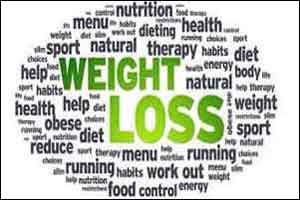- Home
- Editorial
- News
- Practice Guidelines
- Anesthesiology Guidelines
- Cancer Guidelines
- Cardiac Sciences Guidelines
- Critical Care Guidelines
- Dentistry Guidelines
- Dermatology Guidelines
- Diabetes and Endo Guidelines
- Diagnostics Guidelines
- ENT Guidelines
- Featured Practice Guidelines
- Gastroenterology Guidelines
- Geriatrics Guidelines
- Medicine Guidelines
- Nephrology Guidelines
- Neurosciences Guidelines
- Obs and Gynae Guidelines
- Ophthalmology Guidelines
- Orthopaedics Guidelines
- Paediatrics Guidelines
- Psychiatry Guidelines
- Pulmonology Guidelines
- Radiology Guidelines
- Surgery Guidelines
- Urology Guidelines
Want a smaller waist circumference - Eat slowly

In an observational study the researchers from Japan have found that Slow eating helps in weight reduction and a smaller waist circumference especially if coupled with stopping after dinner snacks and not eating within 2 hours of going to sleep.Moreover skipping breakfast wasn’t linked to changes in BMI. The research has been published in the online journal BMJ Open.
Changes in these eating habits were strongly associated with lower obesity and weight (BMI), and smaller waist circumference, the researchers found.
They base their findings on health insurance data for nearly 60,000 people with diabetes In Japan who submitted claims and had regular health check-ups between 2008 and 2013.
The claims data included information on the dates of consultations and treatments, while the check-ups included measurements of weight (BMI) and waist circumference, and the results of tests for blood chemistry, urine, and liver function.
During the check-ups, participants were quizzed about their lifestyle, including their eating and sleep habits as well as alcohol and tobacco use.
They were specifically asked about their eating speed, which was categorised as fast, normal, or slow. And they were asked whether they did any of the following three or more times a week: eat dinner within 2 hours of going to sleep; snack after dinner; and skip breakfast.
More than a third (36.5%) of participants had one check-up over the six years, while just under a third (29.5%) had two. One in five (20%) had three.
At the start of the study, some 22,070 people routinely wolfed down their food; 33,455 ate at a normal speed; and 4192 lingered over every mouthful. The slow eaters tended to be healthier and to have a healthier lifestyle than either the fast or normal speed eaters.
Around half of the total sample (just under 52%) changed their eating speed over the course of the six years.
All the aspects of eating and sleeping habits studied, as well as alcohol consumption and previous obesity--defined as a BMI of 25 kg/m2--were significantly associated with obesity.
After taking account of potentially influential factors, the results showed that compared with those who tended to gobble up their food, those who ate at a normal speed were 29 percent less likely to be obese, rising to 42 percent for those who ate slowly.
And although absolute reductions in waist circumference--an indicator of a potentially harmful midriff bulge--were small, they were greater among the slow and normal speed eaters.
This is an observational study, so no firm conclusions can be drawn about cause and effect, added to which eating speed was based on subjective assessment, nor did the researchers assess energy intake or physical activity levels, both of which may have been influential.
Nevertheless, eating quickly has been linked to impaired glucose tolerance and insulin resistance. This is possibly because it may take longer for fast eaters to feel full, whereas this might happen more quickly for slow eaters, helping to curb their calorie intake, the researchers suggest.
And they conclude: “Changes in eating habits can affect obesity, BMI, and waist circumference. Interventions aimed at reducing eating speed may be effective in preventing obesity and lowering the associated health risks.”

Disclaimer: This site is primarily intended for healthcare professionals. Any content/information on this website does not replace the advice of medical and/or health professionals and should not be construed as medical/diagnostic advice/endorsement or prescription. Use of this site is subject to our terms of use, privacy policy, advertisement policy. © 2020 Minerva Medical Treatment Pvt Ltd